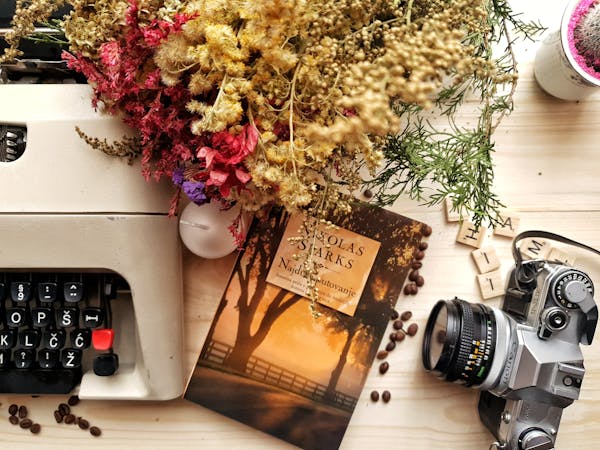Books offer rich narratives and complex characters that filmmakers and TV producers transform into visual spectacles, reaching broader audiences. Here’s a look at some books that inspired successful movies and TV shows, along with insights into their adaptations.
The Lord of the Rings by J.R.R. Tolkien
J.R.R. Tolkien’s epic fantasy trilogy—"The Fellowship of the Ring," "The Two Towers," and "The Return of the King"—has enchanted readers for decades. The series, set in the richly imagined world of Middle-earth, follows the quest to destroy the One Ring.
Peter Jackson’s film trilogy (2001-2003) brought Middle-earth to life with groundbreaking special effects, stunning landscapes, and powerful performances. The films garnered critical acclaim, winning 17 Academy Awards, including Best Picture for "The Return of the King." The trilogy’s success paved the way for more high-budget fantasy adaptations.
Game of Thrones (A Song of Ice and Fire) by George R.R. Martin
George R.R. Martin’s series is known for its intricate political plots, diverse characters, and unexpected twists. The books explore the power struggles among noble families in the fictional continents of Westeros and Essos.
HBO’s "Game of Thrones" (2011-2019) became a global phenomenon, known for its high production values, complex storytelling, and shocking plot developments. The show won numerous awards, including multiple Emmys, and left an indelible mark on pop culture, despite some controversy over its final season.
Harry Potter Series by J.K. Rowling
J.K. Rowling’s seven-book series follows the life and adventures of a young wizard, Harry Potter, as he grows up and battles the dark wizard Voldemort. The series is beloved for its detailed world-building and relatable characters.
The film series (2001-2011) brought Hogwarts and its magical world to the big screen, becoming a massive box office success. The movies were praised for their faithful adaptation of the books and strong performances, particularly by the young cast members who grew up alongside their characters.
The Handmaid’s Tale by Margaret Atwood
Margaret Atwood’s dystopian novel explores themes of totalitarianism, gender oppression, and resistance. Set in the near-future theocratic society of Gilead, it follows the life of Offred, a woman forced into reproductive servitude.
Hulu’s TV adaptation (2017-present) has been critically acclaimed for its powerful storytelling and performances, particularly by Elisabeth Moss. The show has won multiple Emmy Awards and continues to be a significant cultural touchstone, particularly in discussions about women’s rights.
The Hunger Games Trilogy by Suzanne Collins
Suzanne Collins’s trilogy is set in a dystopian future where teenagers are forced to compete in a televised fight to the death. The series explores themes of survival, government control, and rebellion.
The film series (2012-2015) starring Jennifer Lawrence as Katniss Everdeen was a massive hit. The movies were praised for their faithful adaptation and strong performances, particularly Lawrence’s portrayal of the resilient heroine. The films also sparked a new wave of dystopian storytelling in popular culture.
To Kill a Mockingbird by Harper Lee
Harper Lee’s novel is a classic of modern American literature, dealing with serious themes of racial injustice and moral growth. It follows the story of Scout Finch and her father, Atticus, a lawyer who defends a black man falsely accused of raping a white woman in the Deep South.
The 1962 film adaptation starring Gregory Peck is a landmark in cinema history, winning several Academy Awards, including Best Actor for Peck. The film remains an essential watch for its powerful portrayal of the novel’s themes and its faithful adaptation of Lee’s poignant narrative.
The Great Gatsby by F. Scott Fitzgerald
F. Scott Fitzgerald’s novel is a critical look at the American Dream and the decadence of the Jazz Age. It tells the story of the enigmatic Jay Gatsby and his unrequited love for Daisy Buchanan.
The 2013 film directed by Baz Luhrmann and starring Leonardo DiCaprio brought a vibrant, visually stunning version of the novel to the screen. While some critics felt it diverged from the novel’s tone, others praised its stylistic approach and performances.
The Chronicles of Narnia by C.S. Lewis
C.S. Lewis’s beloved fantasy series has captivated readers with its enchanting world of Narnia, where children embark on adventures that often involve battling evil forces and learning moral lessons.
The film series (2005-2010) brought the magical land of Narnia to life, with "The Lion, the Witch and the Wardrobe" being particularly successful both critically and commercially. The films are noted for their visual effects and faithful representation of Lewis’s imaginative world.
The Girl with the Dragon Tattoo by Stieg Larsson
Stieg Larsson’s novel is a gripping mystery thriller with a strong, complex female protagonist, Lisbeth Salander, who teams up with journalist Mikael Blomkvist to uncover a dark family secret.
The Swedish film adaptation (2009) and the American version (2011) both received critical acclaim. The character of Lisbeth Salander has become iconic, thanks to strong performances by Noomi Rapace and Rooney Mara. The films are praised for their suspenseful storytelling and compelling characters.
The Shining by Stephen King
Stephen King’s horror novel is a chilling exploration of madness and supernatural horror set in the isolated Overlook Hotel, where Jack Torrance descends into madness.
Stanley Kubrick’s 1980 film adaptation is a classic in the horror genre, known for its haunting atmosphere and Jack Nicholson’s unforgettable performance. Although it diverged from the book in several ways, it has become a staple in horror cinema and a touchstone for psychological horror.




Comments (0)